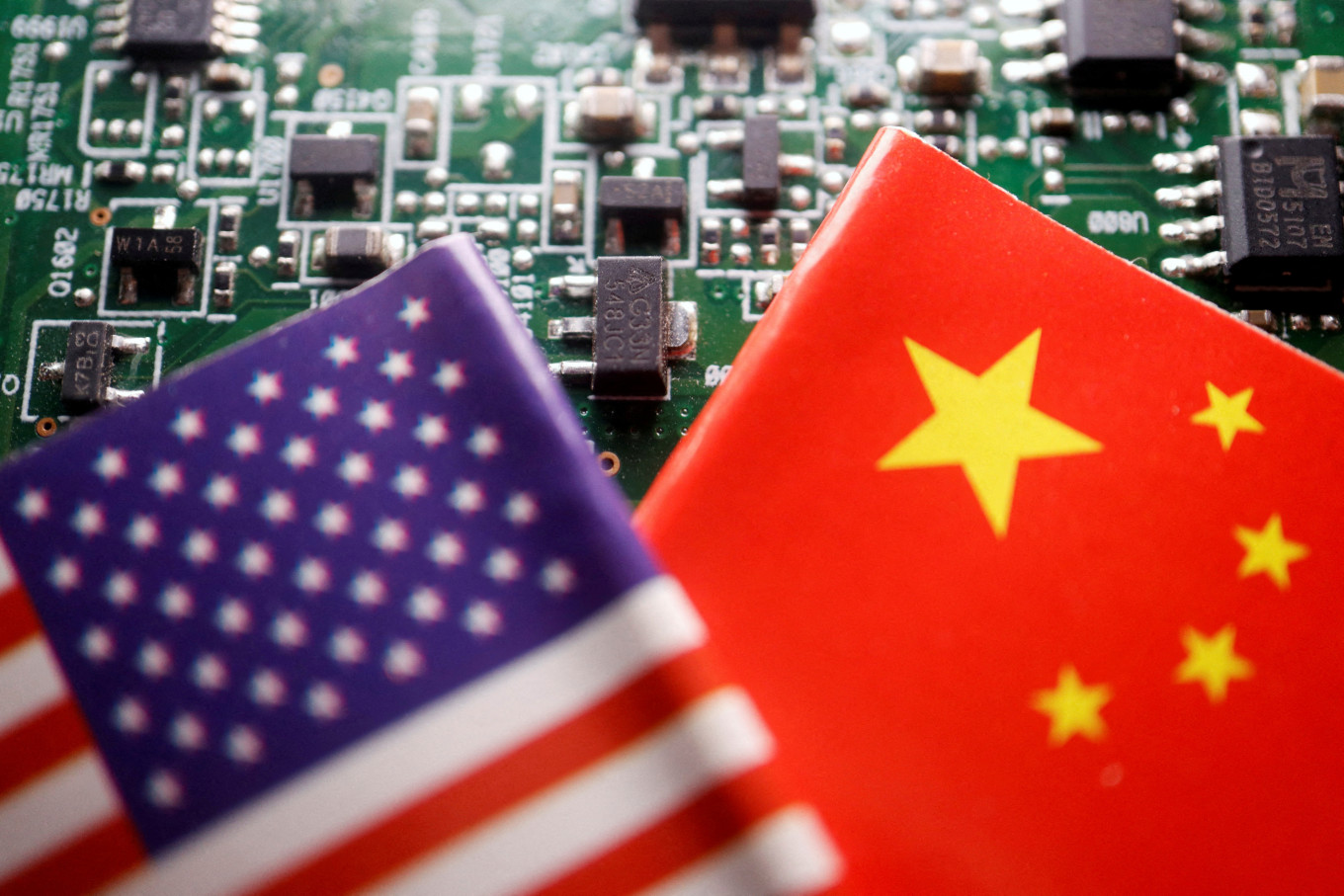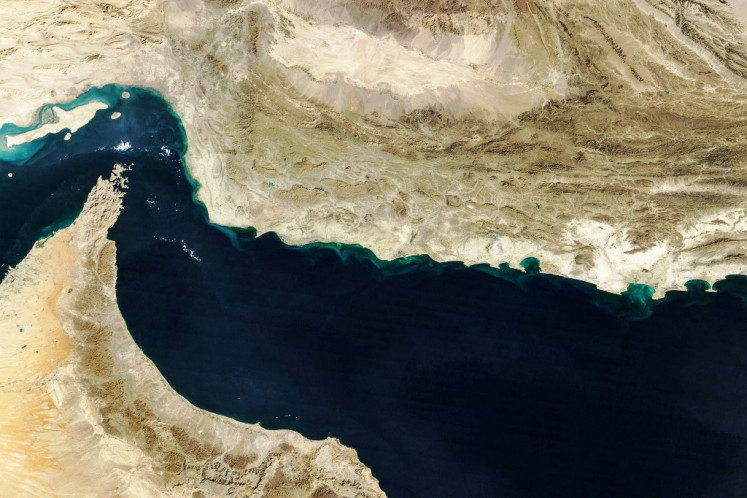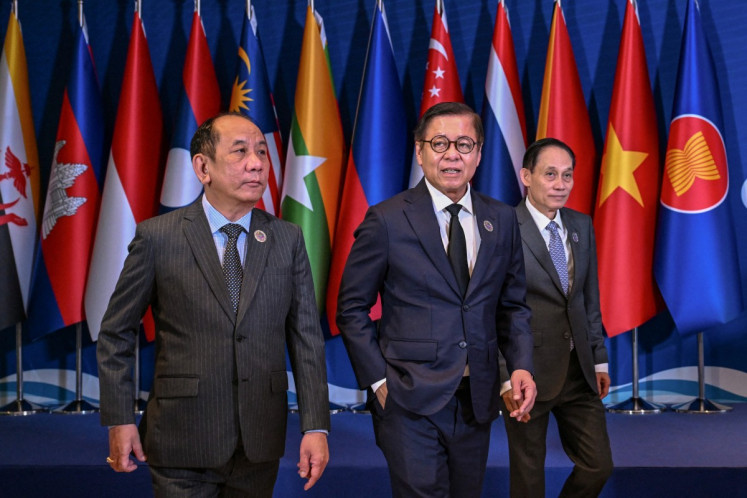Popular Reads
Top Results
Can't find what you're looking for?
View all search resultsPopular Reads
Top Results
Can't find what you're looking for?
View all search resultsNo winners in trade wars
While Vietnam stands ready to jump into the breach when China is confronted with US trade curbs, we must worry about Chinese demand for our materials.
Change text size
Gift Premium Articles
to Anyone
I
t is fallacy that Indonesia could reap some windfall from the escalating United States-China trade war. The spat between the world’s two largest economies is bad news for us, plain and simple.
Therefore, when the US in the heat of the pre-election season imposes exorbitant tariffs on Chinese electric vehicles (EVs) and other products, and when China retaliates with measures of its own, that is not a case of two dogs fighting for a bone and us running away with it.
First of all, China is Indonesia’s biggest trading partner, and its economic wellbeing, more than that of any other country, is directly connected to our own.
Every percentage point (ppt) more or less in China’s GDP growth will move Indonesia’s GDP growth up or down by 0.1 ppt, according to a sensitivity analysis from the Permata Institute for Economic Research (PIER). That compares with a smaller impact of 0.07 ppt for the US and 0.6 for the European Union.
Second, China (mainland plus Hong Kong) is the second-biggest foreign direct investor in Indonesia, almost on a par with leader Singapore.
Yes, some Chinese manufacturers may consider setting up facilities in other countries to enjoy easier access to the US market in circumvention of the trade barriers.
Vietnam has benefitted particularly from this so-called “China plus one” strategy, and other countries in the region, such as Thailand, Malaysia, India and Indonesia, are hoping for the same.
However, there are major structural differences between our resource-focused economy and that of Vietnam, which has long worked on turning itself into a regional manufacturing hub.
Vietnam is a competitor to China in many fields, while Indonesia’s economy is largely complementary to China’s, where we ship the industrial and energy inputs like nickel and coal, while China uses those to produce goods like EVs.
Therefore, while Vietnam stands ready to jump into the breach when China is confronted with US trade curbs, we must worry about Chinese demand for our materials. Vietnam stands to gain; we stand to lose.
That is not something we can simply change overnight, or even over a decade. We need to beef up our manufacturing capacity and build some supply chains from scratch. A look at recent GDP reports shows that we are not doing well in that department.
Indonesia has come a long way in developing downstream industries to process mineral resources into higher-value materials, but the same cannot be said for efforts to make finished goods, where we have a long way to go.
Also, who is to say the US will accept goods produced through Chinese investment on foreign soil? After all, if the claimed purpose behind high tariff walls is to “protect American jobs”, then Washington would also need to prevent imports of cheap EVs or solar panels from countries like Vietnam or, hypothetically, Indonesia.
The bigger problem here is not this or that tariff but the politicization of global trade. To justify their departure from the values of a country that once posed as a beacon of free trade, Washington policymakers accuse China of subsidizing its EV and solar panel industries, but such finger-pointing is rich coming from a country that pumps billions of dollars into semiconductor production.
A justification of the US policy based on the notion of countervailing duties under World Trade Organization rules seems absurd given the negligible number of Chinese EVs on US roads, which is far smaller than that of US EVs in China.
Emerging economies like Indonesia, let alone the poorest countries, will struggle in a world where developed economies pamper their industries with lavish subsidies and high tariff walls.
Together with other countries of the Global South, Indonesia must take a stance against geopolitical restrictions imposed on the global flow of goods, because only then can we leverage our competitive advantages, for instance lower labor costs.
In a major trade war, we may end up as collateral damage.











